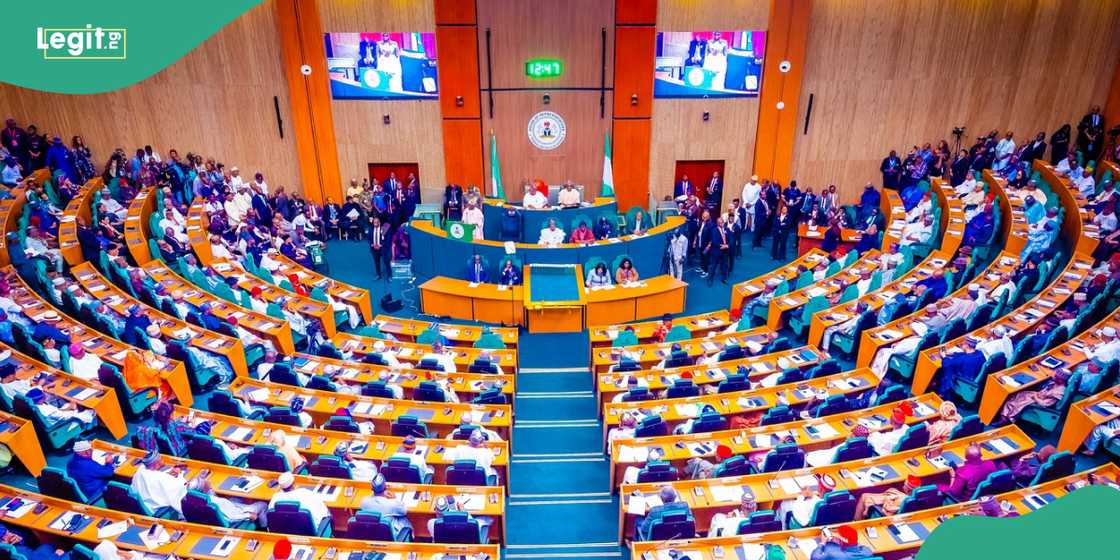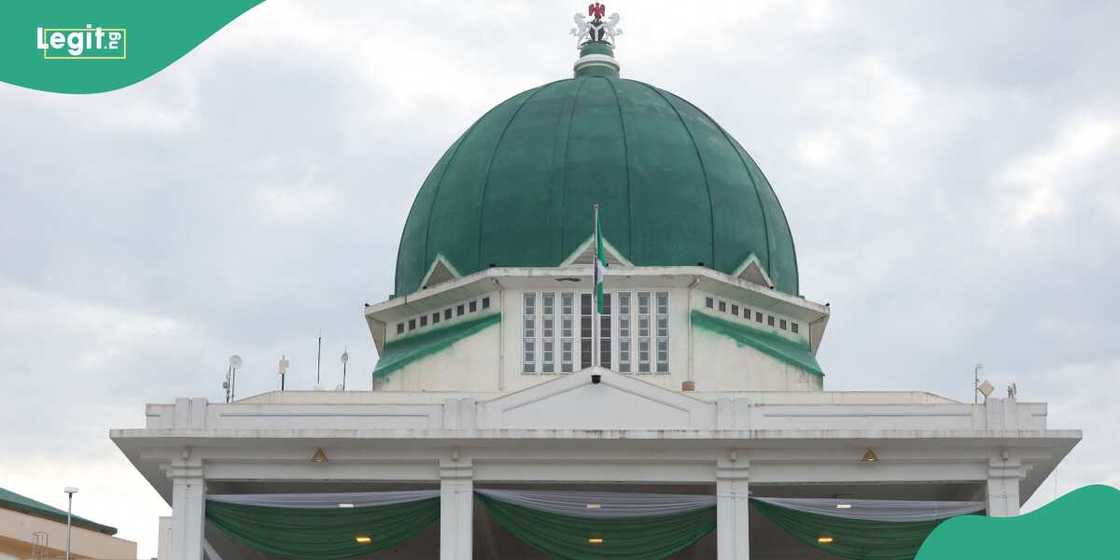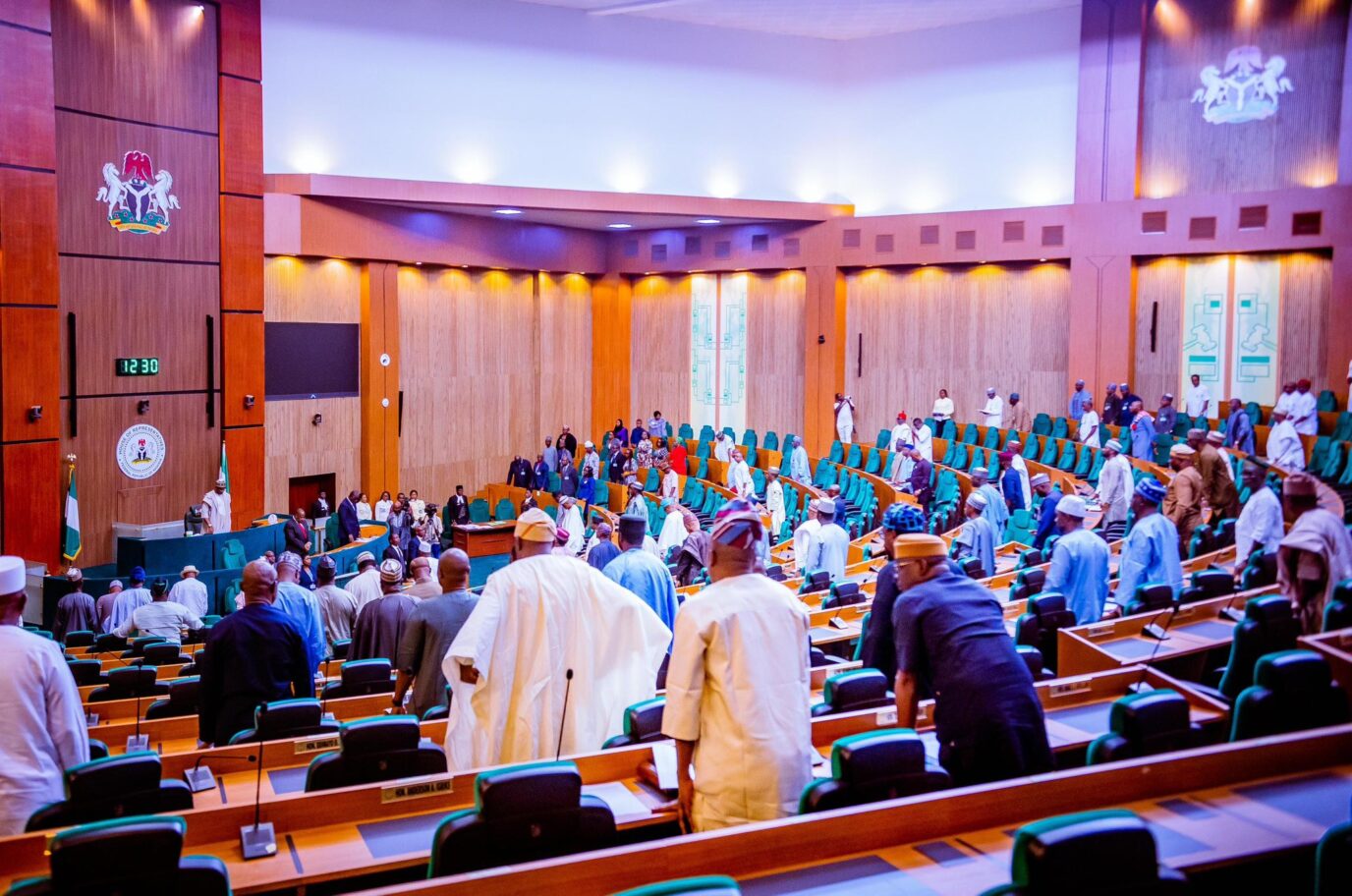Reps Move To Create New LGAs In 5 Prominent States, Details Emerge
- Constitutional amendment bills to create new LGAs in Abia, Delta, Enugu, Imo, and Zamfara states have passed the second reading
- Lawmakers, including Deputy Speaker Benjamin Kalu, are sponsoring bills to split existing LGAs to enhance administrative efficiency and grassroots governance
- The bills require National Assembly and state legislature approval before becoming law, but analysts have warned of potential financial burdens on state resources
FCT, Abuja - The House of Representatives has taken a significant step towards restructuring Nigeria’s local government system as constitutional amendment bills seeking to create new local government areas in five states successfully passed the second reading.
The proposed bills, sponsored by various lawmakers, aim to carve out new administrative units from existing LGAs in Abia, Delta, Enugu, Imo, and Zamfara states.

Breakdown of proposed LGAs
Leading the legislative push, the deputy speaker of the House, Benjamin Kalu, alongside six other lawmakers, sponsored a bill seeking to split the existing Bende LGA in Abia state into two, creating Bende North while renaming the original LGA as Bende South, The Cable reported.
Read also:Nigerias Power Generation Surpasses Fgs 6000mw Target As Minister Calls For Tariff Review
Similarly, Francis Waive, chairman of the House Committee on Rules and Business, introduced a bill advocating for the creation of Ughievwen LGA in Delta state.
In Enugu state, a joint bill sponsored by Paul Nnamchi, Chimaobi Atu, and Nnolim Nnaji proposes additional LGAs to enhance administrative efficiency and grassroots development.
A separate bill, sponsored by Ikeagwuonu Ugochinyere, seeks to create Ideato West LGA from the existing Ideato LGA in Imo state.
Meanwhile, in Zamfara state, Bello Shinkafi’s bill seeks the formation of Moriki LGA from the present Zurmi LGA.
For these proposals to become law, they must undergo rigorous legislative scrutiny, pass through voting in both chambers of the National Assembly, and secure the approval of at least two-thirds of state legislatures before being transmitted to the President for final assent, Vanguard reported.
Analyst reacts to move to create more LGAs

While the bills have received support from various lawmakers, some political analysts have raised concerns about the financial viability and administrative efficiency of creating additional LGAs.
Read also:Foreign Based Stars Withdraw From Nigeria Training After Camp Relocation
Seyi Adewale, a political analyst, while speaking to Legit.ng, cautioned that:
"While decentralization is important, the financial sustainability of these new LGAs must be thoroughly examined to avoid adding unnecessary burdens on state resources."
As the legislative process unfolds, Nigerians await further developments on the potential restructuring of local governance in these five states.
Constitutional challenges of creating new LGAs - Okafor
In an article published in the Commonwealth Journal of Local Governance, Jude Chizoba Okafor, a lecturer in the Department of Political Science, Nnamdi Azikiwe University, highlighted the constitutional challenges of creating new local government areas in Nigeria.
"Since the entrenchment of local government as a third-tier level of government in the 1979/1999 federal constitutions of Nigeria, there have been a lot of difficulties in creating new local governments," he said.
Okafor said that while states are empowered to "establish" local governments, the federal government's role in statutory allocations and constitutional amendments creates ambiguity.
He added that the listing of existing local governments in the constitution's schedules further complicates the process.
The scholar cited the dispute between Lagos state and the federal government over the creation of 37 new local government areas as a prime example of the constitutional challenges. He said the Supreme Court's ruling on the matter highlighted the ambiguity of the constitutional provisions and the federal government's overreach.
Okafor recommended expunging local government affairs from the federal constitution and leaving them to state governments. According to him, this would resolve the issues arising from federal statutory funding and allow states greater autonomy in local governance.
"This recommendation is considered apt because the underline issue fueling the Constitutional crisis over the creation of new local government areas is the Federal statutory funding/allocation to Local Government Councils," the university don added.
Bill to return Nigeria to parliamentary era gains prominence
The House of Representatives on Thursday, March 27, passed the bill seeking to return Nigeria to the parliamentary system of government for second reading.
The bill was one of the 31 constitutional amendment bills that passed the second reading during the plenary, which was presided over by Benjamin Okezie Kalu, the deputy speaker of the House.
Kingsley Chinda, the minority leader of the House of Representatives and 59 other lawmakers were the sponsors of the bill.
Article updated with key insights from a research paper by university lecturer Jude Chizoba Okafor on the challenges of creating new LGAs, by Head of Politics/CA Desk, Nurudeen Lawal.
Proofreading by Nkem Ikeke, copy editor at Legit.ng.


